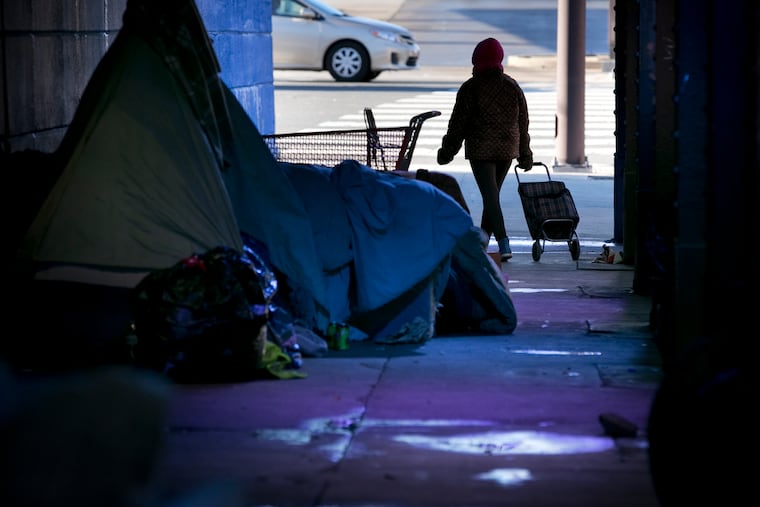Supervised injection sites being forced upon people, neighborhoods that don’t want them | Dom Giordano
People take pride in their neighborhoods and don't want the scourge of drug addiction to become a threat to their families

It’s hard to become a beloved public figure in Philadelphia. New York may have the reputation, but we are the capital of tough love. Gritty is hot now, but he has not reached the beloved status of the Phanatic. Athletes such as Chase Utley and Joel Embiid are beloved, and radio stars such as Pierre Robert and Sid Mark qualify.
However, Philadelphia doesn’t show love to politicians very often. Ed Rendell, former mayor and former Pennsylvania governor, is beloved, and he has joined with Sister Mary Scullion, who is both beloved and my candidate for sainthood, to advocate for supervised drug injection sites, where addicts could inject illegal drugs and be rescued by medical personnel if they overdose. As much as I respect both, they are dangerously wrong on this issue.
In addition to that, U.S. Attorney William McSwain, appearing on the Tucker Carlson show last week, said they and the activists poised to open so-called safehouses all over the city are “arrogant” and charged that they “don’t believe in democracy.”
I share this view and I’m glad that McSwain is giving clear warning that he won’t allow these sites to function in Philadelphia. When we discussed on my show last Friday the civil action he has brought to stop the activists, he told me that he is aware that they might try to open a site in Kensington before the judge rules in the case and that he would swiftly act to stop it.
On both Carlson’s and my shows, McSwain emphasized that he believes proponents of such sites do not have the support of Philadelphia citizens, City Council or any significant local group. They said are getting media attention because they are “loud.” I think McSwain is mostly right on this point. WHYY reported last week that at a public meeting, Kensington residents were very upset that they had no notice before Rendell revealed at a conference in Washington that a donor would provide a site near the Kensington and Allegheny El stop for a supervised injection site.
Shannon Farrell, president of the Harrowgate Civic Association, a local group, summarized the mood best by telling WHYY: “We have done what they asked us to do -- supported recovery, supported Narcan. I think that all of us want to save lives.”
She when on to say, “Now we’re at that point where we cannot support this, because we would literally be choosing the lives of the drug users over our children. And that’s what we’re never going to get around.”
I think McSwain would say Farrell represents Philadelphia’s resistance to injection sites, but I think many progressives support the idea, as long as a site isn’t placed near them. These are the same people who support the soda tax. I think they have been emboldened by things such as Mayor Jim Kenney’s unlawful sanctuary city policy and District Attorney Larry Krasner’s failure to fully prosecute criminal behavior.
I share my colleague Daily News columnist Solomon Jones’ concerns that these progressives are comfortable telling communities of color that they will have to accept these sites. I don’t fully buy his thesis that such positions are triggered by the fact that victims of the opioid epidemic are white, while victims of the crack epidemic went to jail because they were black. Rather, I see this as the incremental logic of progressive thought. Rendell instituted needle exchanges years ago and now wants to provide help with injections, and, logically, some progressive a few years from now will say the government should provide drugs that are less likely to cause overdoses.
This battle will play out in the courts for now, but it should also become a big issue in the current mayor’s race. Kenney, who is seeking re-election, clearly has allowed private entities to begin to make moves to set up injection sites, and it seems very clear that he would keep the police from shutting them down. Do other candidates for mayor support this approach?
Remember, news reports indicate that five of these supervised injection sites are being considered for Philadelphia. If you support the idea, I think that you, Rendell, and the activists behind this scheme should welcome one on your block.